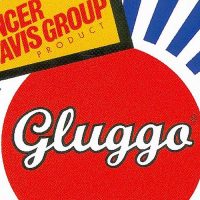The Spencer Davis Group was, and remains, more than Steve Winwood – having continued recording and touring into the new millennium under the auspices of its Welsh-born multi-instrumentalist namesake.
Post-Winwood highlights have included 1967’s Here We Go Round the Mulberry Bush film and soundtrack, a pair of Top 40 U.S. hits in “Time Seller” and “Mr. Second Class,” an underrated project featuring two legendary Elton John Band members in Dee Murray and Nigel Olsson, and 2006’s So Far, which again featured longtime SDG cohort Eddie Hardin as well as producer, engineer, guitarist and songwriter Ed Tree — who has worked with Davis since 1984’s Crossfire album.
Hardin, a keyboardist and vocalist, and guitarist/vocalist Phil Sawyer replaced the brothers Muff and Steve Winwood – who had helped the Spencer Davis Group to gold-selling American success with “Gimme Some Lovin’” and “I’m a Man” beginning in 1966. Steve left to co-found Traffic, while Muff became an A&R executive with Island Records.
Hardin eventually departed, too, forming Hardin and York with founding SDG drummer Pete York in the late 1960s, before both returned to the band for a pair of albums in the early 1970s. Beginning in the mid-2000s, Hardin was again by Davis’ side, and the Spencer Davis Group continues to this day.
Steve Elliott talked to Davis, in our newest Something Else! Sitdown, about the days immediately following the Winwoods’ departure – as the so-called SDG Mk. II edition began to make its way. Turns out that album with Murray and Olsson isn’t the Spencer Davis Group’s only connection with Elton John …
STEVE ELLIOTT: I wanted to focus on the Mk. II Spencer Davis Group line-up — which, I don’t think has been covered enough. What’s really been fascinating for me through CD reissues is finding out more about the post-Winwood line-ups starting with the 1967 Phil Sawyer/Eddie Hardin SDG line-up. That’s my favorite line-up after the original band.
SPENCER DAVIS: Well, Phil Sawyer had a short spell with us. A great singer, a great guitar player, I think he played in the Shotgun Express first and also in a band called Fleur de Lys. Phil had sort of — I mean, a nutter’s, not as madly as Syd Barrett but Phil, you know, sometimes he wasn’t of this earth. But a terrific musician, no doubt about it. Yeah, we did some of the songs for ‘Here We Go Round the Mulberry Bush,’ which included Eddie and Phil playing Hammond and guitar. You know, that sort of unison sort of figure together, which is really cool.
STEVE ELLIOTT: What were those 1967 auditions like for you, when you finally landed upon Phil Sawyer and Eddie Hardin as Muff and Steve Winwood’s replacements? You must’ve had a hell of a lot of people show up for that.
SPENCER DAVIS: Yep. Terry Reid, Reggie Dwight — later Elton John, of course. The only two that stick in my mind would be Terry Reid and Elton John. Of course, Phil immediately with that style of guitar playing, and fit right in — that sort of blues-rock thing.
STEVE ELLIOTT: He was excellent! I couldn’t believe how much Phil sounded like Steve Winwood.
SPENCER DAVIS: Oh yeah. Well, you know, I wasn’t looking to duplicate Steve’s voice, but it didn’t hurt that he had those inflections or those phrasings. Phil could do it and, Eddie Hardin is also a great singer. So, the good thing was/is to have a lot of variety and, I sang in there myself with them.
[SOMETHING ELSE! INTERVIEW: Spencer Davis tells us that he always saw big things for Steve Winwood: ‘You must be bloody kidding?! I knew from the get go.’]
STEVE ELLIOTT: On ‘Here We Go Round the Mulberry Bush’ sessions — one of the songs, “Taking Out Time,” I think is your best lead vocal performance ever.
SPENCER DAVIS: Using all the effects at the back end, as well. Thank you. That was reasonably, fairly psychedelic. “Time Seller,” which Eddie and I wrote together, actually got picked up in Europe as a single. “Time Seller” was kind of like a Ray Davies song — in the way that Ray Davies used to invent characters. That was what I was doing, but not copying Ray or anything. I just felt this was the way to go, to invent a character that sold time — because some people have (an) obsession with time. Time is the only thing that has no beginning and has no end, you know. As far as we know!
STEVE ELLIOTT: “Time Seller” was a hit single for you all across Europe. I wonder why it was never released here in the U.S.?
SPENCER DAVIS: I’ve got a theory — well, not a theory: I know why. Because, when “Time Seller” came out, that was the first single of the SDG Mk II, and I think there was a bit of delusion in the Traffic camp when they put out — not “Hole In My Shoe,” because that was Dave’s; that was pure Dave Mason, “Hole in My Shoe.” It was “Paper Sun,” there you go. So, you have “Paper Sun” and “Time Seller” which, if you think about it, were very similar in their sort of approach. So what happened was, they both ended up at the bottom the Billboard Hot 100. I remember seeing them at like No. 96 and No. 98. So people had seen Steve move from SDG to Traffic and so, there was that sort of split. You know, we were our own worst competition, in a way. But a lot of people like “Time Seller” over the other one Eddie and me had together, “Mr. Second Class,” which was again another person that I sort of invented. A lot of people said: “Well, was that Spencer Davis’ sort of inferiority complex song?” Absolutely not! It was about a person — it wasn’t an inferiority complex. It was about a person who lose(s) position and never tried to move on. So it was more about ignorance, than inferiority.
STEVE ELLIOTT: OK, so now you have Phil Sawyer and Eddie Hardin in the SDG in mid-1967. What were some of the first things that you did, now that you had them in the line-up and were ready to go?
SPENCER DAVIS: Well, we did the film music for ‘Here We Go Round the Mulberry Bush’ but if you look at it, you’ll see is that it was sort of split. They wanted the SDG but, probably when the contract was drawn up for rights for doing the film music, Steve was still in the band. By the time the film actually got shot, he’d already gone to Traffic — so, you had a soundtrack which was written by the SDG and (Traffic’s Jim) Capaldi and Steve and Dave. What’s really unique, but not so much well known, is that on (the SDG Mk I’s) “Somebody Help Me” — the second No. 1 single after “Keep On Running” — we’ve got Dave Mason and I singing along with Steve. You know, on the three-part harmony on the chorus? That’s Dave and myself, along with Steve.
STEVE ELLIOTT: I never knew that! (Laughs)
SPENCER DAVIS: And, you’ll also find Dave Mason and Capaldi and Chris Wood sort of wailin’ away on background vocals for the American version of “Gimme Some Lovin.’” The European version of “Gimme Some Lovin’” doesn’t have background vocals, but it was also a different vocal from Steve from the American one. This (U.S. single) also has some overdubs of piano and percussion which weren’t on the European one. And, for those guys who are totally into version A and version B — you know, European version; American version? — they’d be startled at the power of the European one. It was just the four of us and there were no overdubs. Just a straight-ahead groove with — oh! Jimmy Miller. Let’s not forget Jimmy Miller. “Gimme Some Lovin’” had the touch of Jimmy Miller. He produced “Gimme Some Lovin’”; (label founder and band manager) Chris Blackwell was nowhere near the studio when that song was done. He was nowhere near us when we came up with it, based on a groove by Homer Banks. There’s no doubt about it. I mean, I’ll field that call from anybody.
STEVE ELLIOTT: One of the songs that sticks in my mind as far as the SDG Mk II line-up goes is “Every Little Thing,” which sounded like a great hit single to me.
SPENCER DAVIS: Sure. That was, like, a pop R&B song. That was Eddie Matthews, who was a trumpet friend — a musician friend of Pete York. We wrote that together. That was a great performance by Phil on that. There’s no doubt about that. Initially, I was approached by Strange Fruit — an indie label in the U.K. — and they said: “We’ve got the BBC tapes; we’ll give you a 17 percent royalty” — which is unheard of in those days. I mean, the royalty that we were getting in America was 2 percent of 80 percent of the retail selling price on singles and 4 percent on LPs. So, if you want to know where the other 8 percent went? (Laughs.) Very simple, 50 percent of that went to probably, the production company, which would’ve been Island. So in other words, he (Chris Blackwell) was making four times as much as each individual member, including Steve Winwood.
STEVE ELLIOTT: Now, another great performance is the Mk II version of “Looking Back.”
SPENCER DAVIS: Well, that is based on an old R&B thing. I played bass on that ‘til I blistered — ‘til my hands fell off. It’s not the greatest bass line ever, but there’s a lot of energy and that’s Phil and Eddie playing in unison on guitar and organ.
STEVE ELLIOTT: Yeah, I think that’s the best version. I think it’s even better than John Mayall’s version!
SPENCER DAVIS: I think so, too. Yeah.
STEVE ELLIOTT: One concert I was curious about with the SDG Mk II line-up was the 1967 NME Poll Winner’s Contest. Did that happen before or after the ‘Mulberry Bush’ soundtrack sessions?
SPENCER DAVIS: I think that happened at the same time, actually. And then we got on the plane and went to France. Just as we were leaving Wembley, where that poll winner’s contest was held, the Beatles were coming the other way. And I remember waving to Paul (McCartney) and that was about it. You know, bye.
- How the Bee Gees Overcame It All to Produce the Magical ‘Odessa’ - March 29, 2024
- How an ‘Antique French Garage Band’ Nailed the Whole Soul Music Vibe - November 27, 2022
- Kyte – ‘Kyte’ (2009): Forgotten Series - April 9, 2022





Spencer Davis used to practice his guitar in my office at Mech Eng Dept University of Birmingham and I knew he would be a resounding success and that was way back…..
Keep on Running Spencer!!!!!